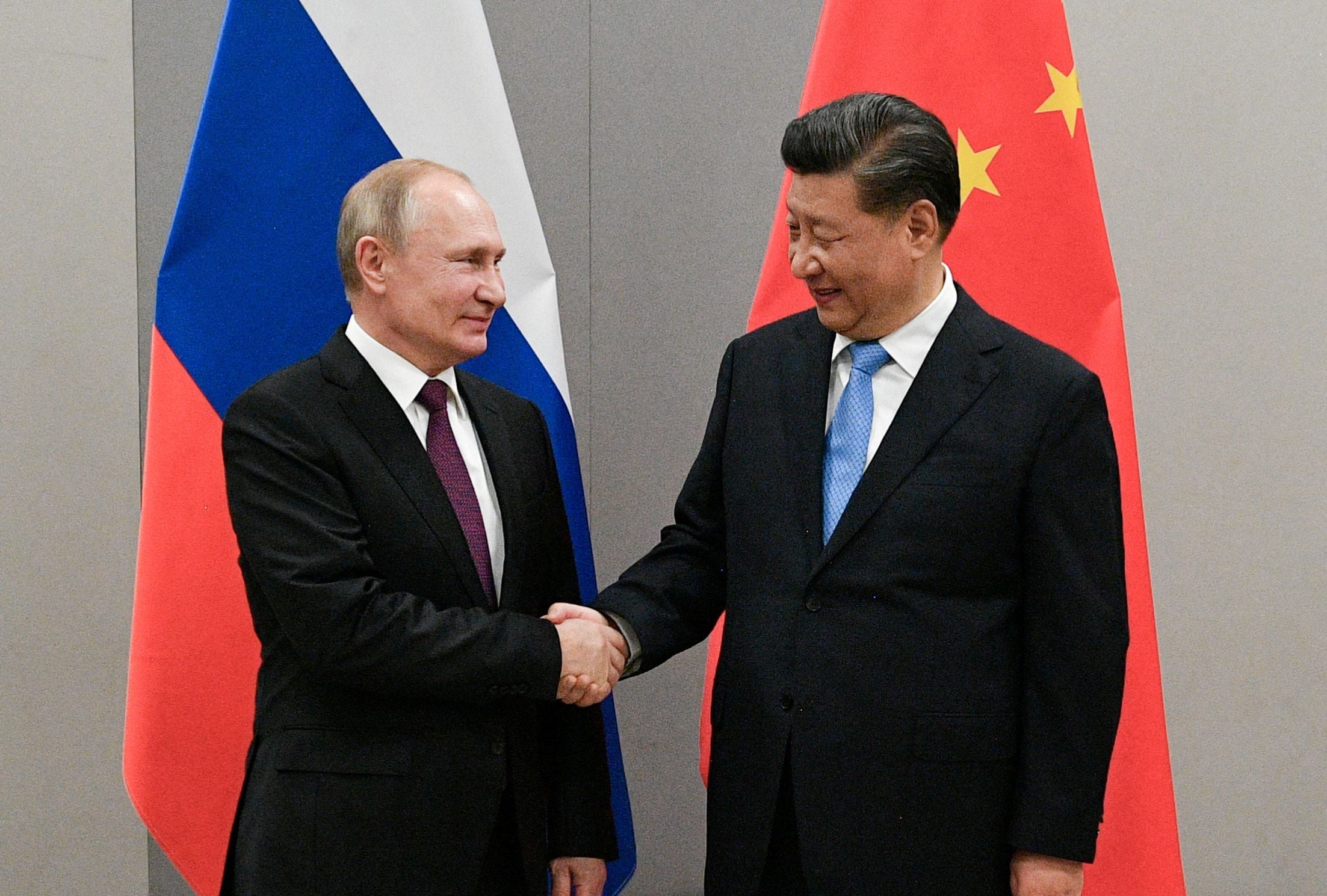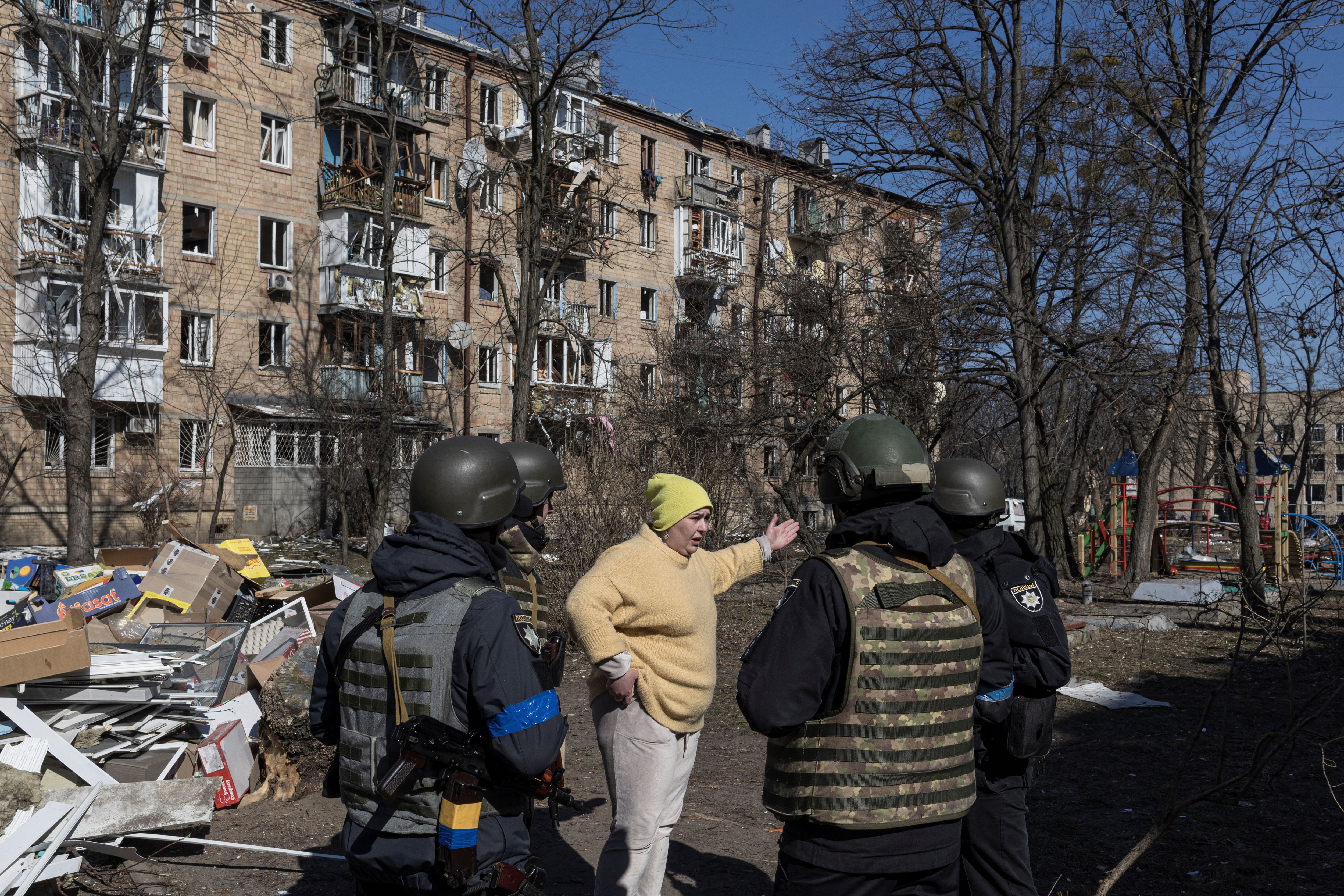
In an article analyzing the impact of the Russian invasion of Ukraine and how China will come out after this, The Economist indicated that it is too early to know whether Russia will win after the fighting. Meanwhile, the world's emerging superpower is weighing its options. Some argue that China will build on a pre-war friendship with Russia that “knows no bounds”, to create an axis of autocracy. Others respond that the United States can convince China to break relations with Russia, isolating Vladimir Putin, its president.
The Economist's analysis suggests that neither scenario is likely. “The deepening of ties with Russia will be guided by cautious self-interest, as China exploits the war in Ukraine to accelerate what it considers the inevitable decline of the United States. The focus at all times is his own dream of establishing an alternative to the western liberal world order,” he says.

He then emphasizes that both Chinese President Xi Jinping and Putin want to divide the world into spheres of influence dominated by a few large countries. “China would rule East Asia, Russia would have a veto on European security, and the United States would be forced to return home. This alternative order would not include universal values or human rights, which Xi and Putin see as a trick to justify Western subversion of their regimes. They seem to see such ideas as soon as relics of a liberal system that is racist and unstable, replaced by hierarchies in which each country knows its place within the overall balance of power,” he continued.
So, according to The Economist, Xi Jinping would like the invasion of Russia to show the powerlessness of the West. “If sanctions on Russia's financial system and high-tech industry fail, China will have less to fear such weapons. If Putin were to lose power because of his miscalculation in Ukraine, he could surprise China. Without a doubt, it would embarrass Xi, who would see that he also miscalculated by alliing with him, a setback when he seeks a third term as leader of the Communist Party,” emphasizes the media.
He then states that, “because of all that, Chinese support has its limits.” He argues that “the Russian market is small” and that Chinese banks and companies do not want to risk losing much more valuable businesses elsewhere by circumventing sanctions. A weak Russia suits China because it would have no choice but to be docile.

NATO's role vis-à-vis China
In its analysis, the prestigious media argues that “NATO's first task is to challenge Chinese predictions by sticking together” and that, as weeks turn into months, that can become difficult.
“Imagine that the fighting in Ukraine settles in a bleak pattern of urban warfare, in which neither side clearly wins?” , he asks; and replies: “The time may come when political leaders have to find resolution within their own countries.”
He then stresses that the West needs to “exploit the big difference” between China and Russia. “Three decades ago, its two economies were the same size; now China's is ten times larger than Russia's. Despite all Xi's frustration, China has prospered with today's order, while Russia has only undermined it. Obviously, Xi wants to revise the rules to better serve his own interests, but he is not like Putin, who has no other way of exerting Russian influence than disruptive threats and the force of arms. Russia under Putin is an outcast. Given its economic ties with the United States and Europe, China has an interest in stability,” he said.
Finally, he estimated that, instead of pushing China “out of the family of nations, there to feed its fantasies, treasure its hatreds and threaten its neighbors,” as Richard Nixon wrote years before his famous trip to Beijing five decades ago, the United States and its allies should show that they see superpower in rise differently.
“The goal should be to persuade Xi that the West and China can prosper by agreeing on what is possible and to differ when it is not. That requires determining where engagement helps and where national security threatens,” he continued.
“Could China embark on this path by helping to quickly end the war in Ukraine?” , he wonders. He concludes: “Unfortunately, except for the Russian use of chemical or nuclear weapons, that seems unlikely, since China sees Russia as a partner in the dismantling of the liberal world order. Diplomatic pleas will influence Chinese calculations less than the Western resolution to make Putin pay for his crimes.”
KEEP READING:
Últimas Noticias
Debanhi Escobar: they secured the motel where she was found lifeless in a cistern

The oldest person in the world died at the age of 119

Macabre find in CDMX: they left a body bagged and tied in a taxi
The eagles of America will face Manchester City in a duel of legends. Here are the details

Why is it good to bring dogs out to know the world when they are puppies



